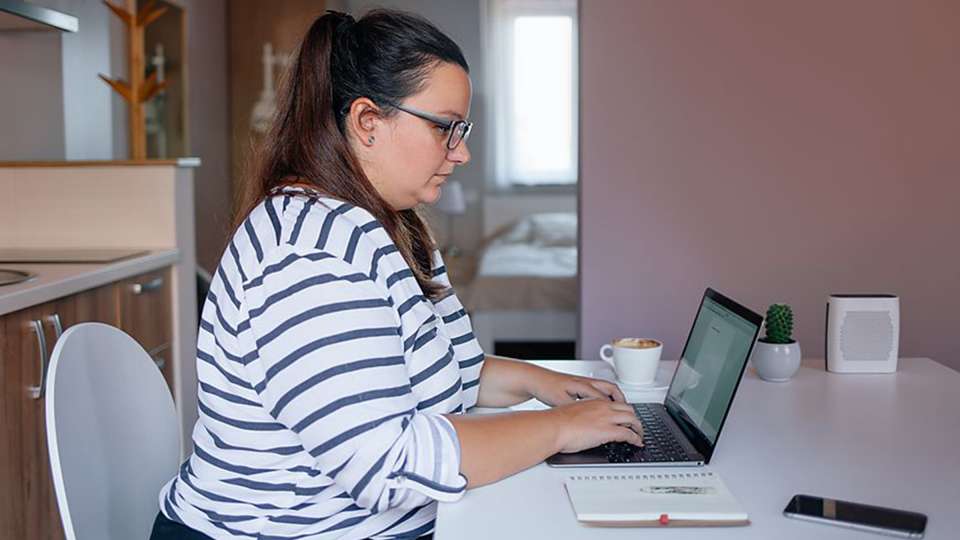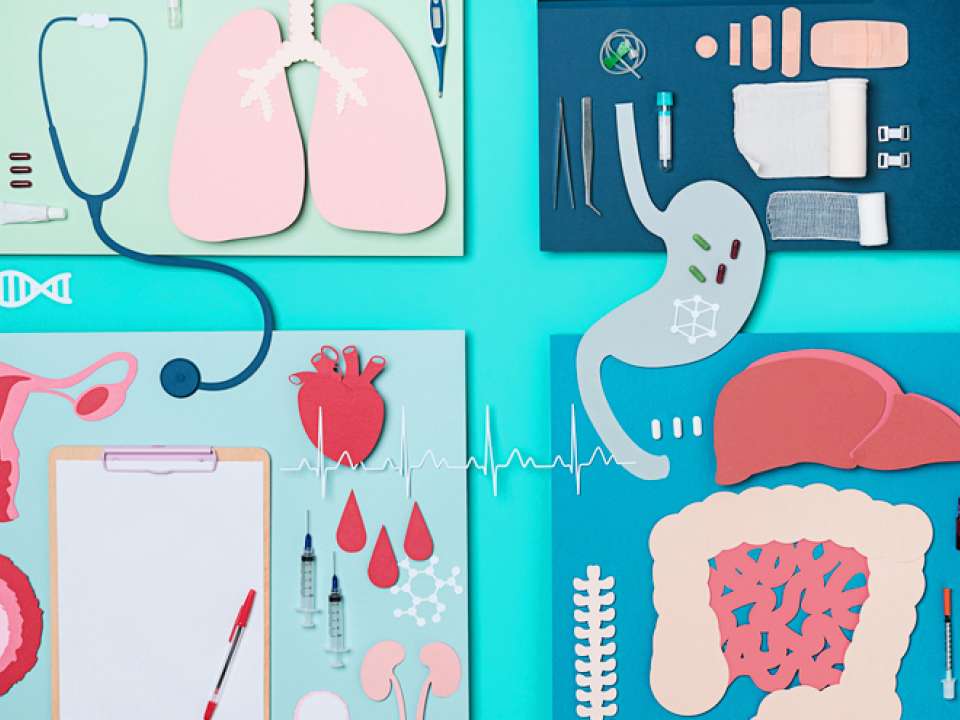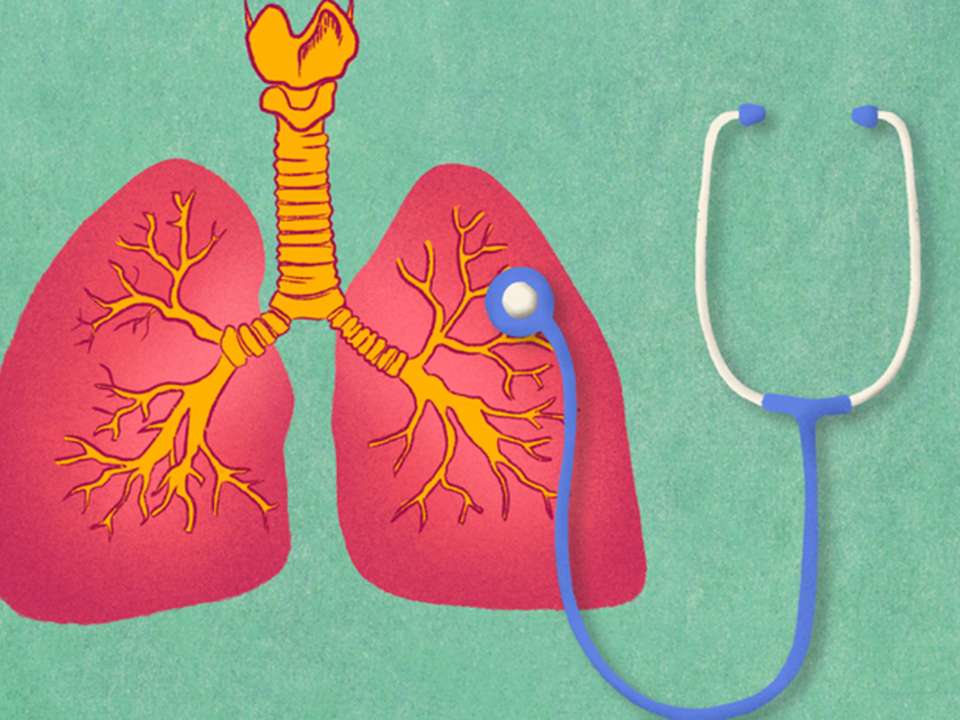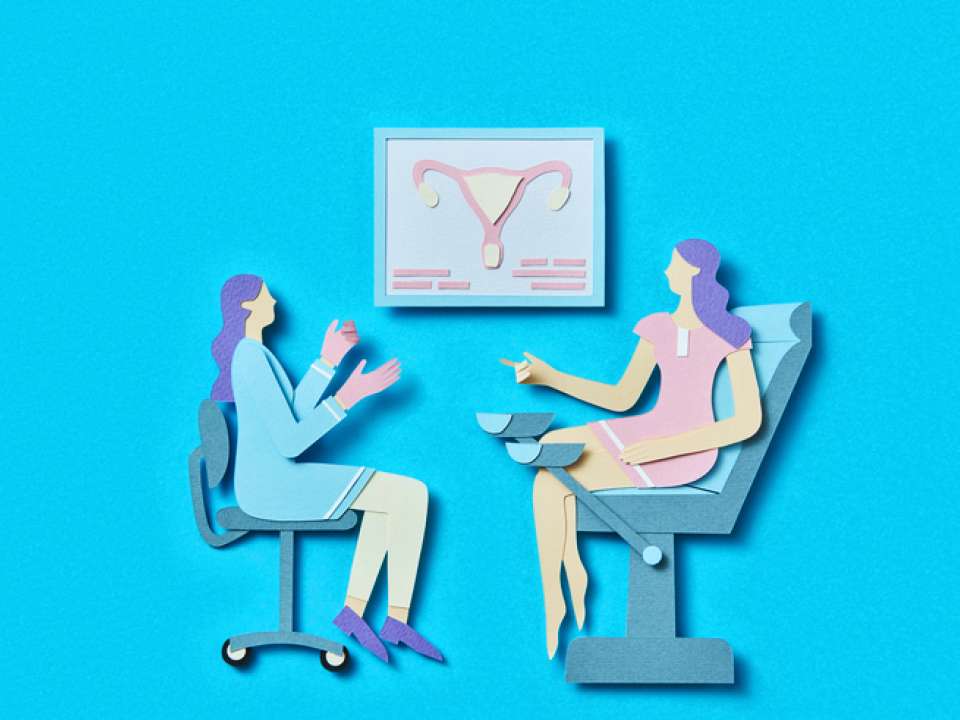If You Could Get Tested for Ovarian Cancer from Home, Would You?

A small vial of spit—that’s all it takes to determine whether you have a gene mutation that puts you at higher risk for ovarian cancer.
“Many women don’t know they’re at risk until they get cancer. We want to change that,” says Elizabeth Swisher, M.D., a gynecologic oncologist at UW Medicine and director of the breast and ovarian cancer prevention program at Seattle Cancer Care Alliance.
Every year, approximately 25,000 women will be diagnosed with ovarian cancer, and nearly 15,000 of them will not survive. It is called a “silent killer” because it is often caught only in late stages of the disease, after it has spread beyond the ovaries. Early symptoms can be vague, such as stomach pain and swelling, a change in bowel habits and bloating.
Most women who get ovarian cancer are middle-aged, though it can occur in young women, particularly women who have a genetic predisposition for it.
Genetic testing from the comfort of home
Swisher leads a national team of researchers sponsored by Stand Up To Cancer investigating how much genetic counseling women need when they receive genetic testing for ovarian cancer and get their results online. The study, called MAGENTA (an abbreviation for Making Genetic Testing Accessible), provides women who enroll with free genetic testing to determine if they have a mutation on one of 19 different genes—including BRCA1 and BRCA2—that are implicated in hereditary ovarian cancer.
To enroll in the study, women must be 30 years or older and have a family history of breast or ovarian cancer, among other criteria.
If a woman qualifies, she will be mailed a spit kit. All she has to do is provide a saliva sample, mail it back and wait for the results, which she can look up online. Some women will receive genetic counseling, either by phone or online, and others will receive electronic information about genetic testing and what their options are depending on the results they receive.
The goal of the study, Swisher says, is to make genetic testing and counseling easier and more convenient for women.
“We call it, ‘the study of genetic testing from your living room,’” Swisher says.
The dynamics of genetics
Genetic counseling is a complex, highly personalized form of care that involves providing emotional support and helping someone discover their particular risk for developing cancer based on a detailed family history.
Though genetic counseling focuses on the individual and her particular risk for developing cancer, it’s also a family affair, says Robin Bennett, M.S., a licensed genetic counselor who sees patients at UW Medical Center. Discussing how someone will inform her family of her test results, whether they’re positive or negative, is a regular part of Bennett’s job—as is helping people handle the emotions that may come with learning of their cancer risk.
Even if a woman’s results are negative for any cancer-causing genes, that doesn’t mean she will be completely happy or at ease, Bennett says.
“People can experience survivor’s guilt if they tested negative but someone in their family died from cancer,” she says. Additionally, just because a woman tests negative doesn’t mean she will never get cancer, and therefore she may still be concerned.
Most people do fine with genetic testing, Bennett says, but counseling is a nice safety net to have in case someone is particularly upset or nervous about getting tested—or about their results.
Looking into the crystal ball
Both Swisher and Bennett stress the importance of knowing your family history so you can consider if genetic testing is right for you. The idea of learning your cancer risk can be alarming; however, many people tend to overestimate their risk, Bennett says.
Ultimately, it’s better to know your risk and take action to decrease it than to not know and worry about getting cancer.
“Getting tested empowers women to improve their self-knowledge and take charge of their health. What they learn could also provide important health information to family members,” Swisher says.

 Healthy ideas for your inbox
Healthy ideas for your inbox





